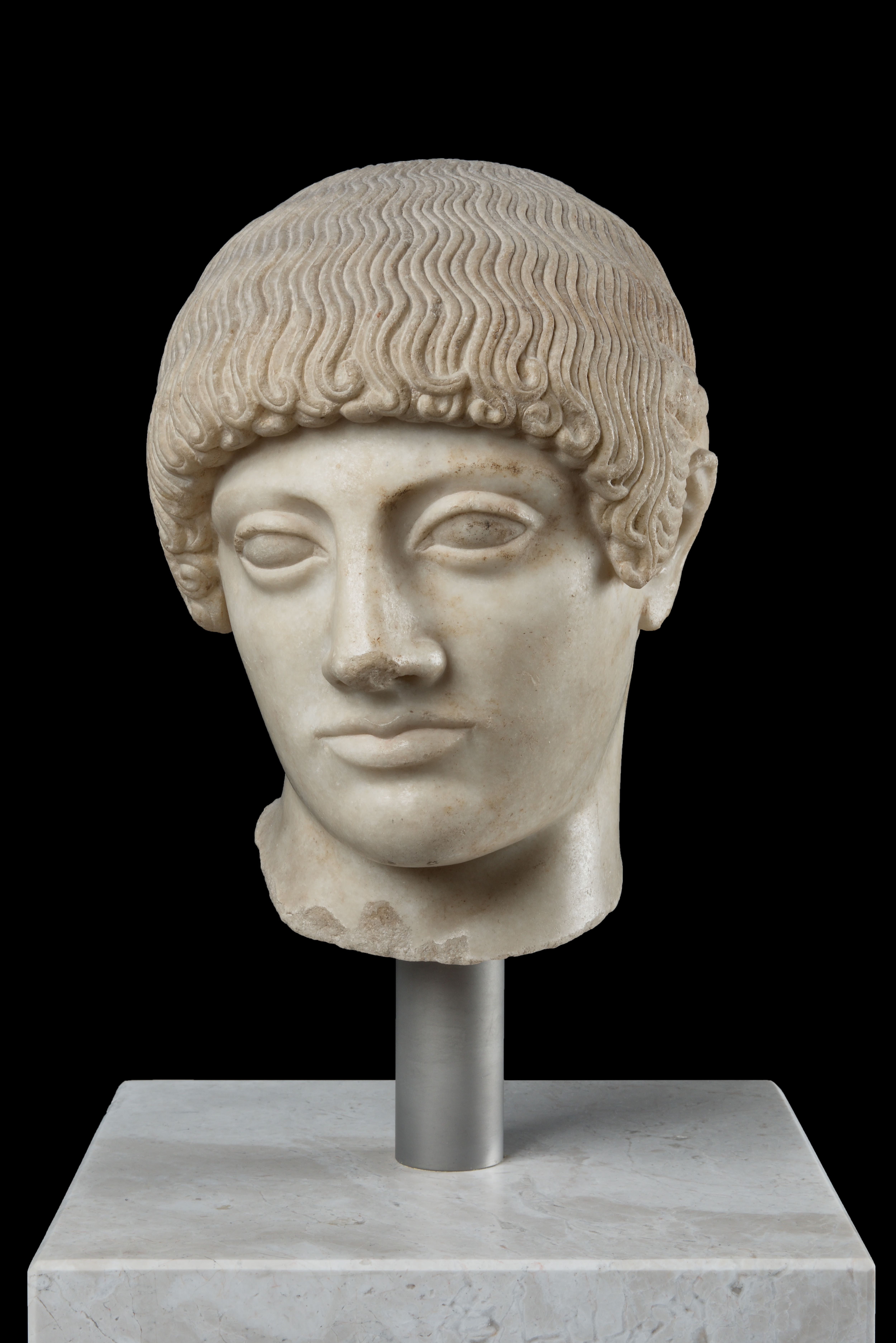PRESS IMAGES
This section is designed specifically to assist media representatives. Use of the material is reserved exclusively for publishing photos in any print or electronic media.
The Acropolis Museum reserves the copyright for all photographic material provided. For every use of the Museum material, it is obligatory to credit the source, and the name of the photographer, in accordance with international regulations: © Acropolis Museum, photo: [photographer’s name].
DOWNLOADABLE FILES

The “Calf-Bearer”. Around 570 BC (Acr. 624)
© Acropolis Museum.
Photo George Vitsaropoulos

One of the largest and best preserved Korai, with sophisticated hairstyle and elaborately folded attire. Around 520 BC (Acr. 682)
© Acropolis Museum.
Photo Socratis Mavrommatis

Detail of a Kore with a particularly elaborate hairstyle and expressive features, accentuated with paint. Around 490 BC (Acr. 684)
© Acropolis Museum.
Photo Socratis Mavrommatis

The “Euthydikos Kore” and a detail of her feet. Lacking the smile of earlier Korai and wearing simple clothing, she has just crossed into the realm of the so-called “Severe Style”. 480 BC
© Acropolis Museum.
Photo Nikos Daniilidis

The “Rampin Rider”, a masterpiece by a great Athenian sculptor, the oldest statue of a rider dedicated on the Acropolis. The head is a copy from the original, donated to the Louvre Museum by G. Rampin, from whom the sculpture received its name. Around 550 BC (Acr. 590)
© Acropolis Museum.
Photo Socratis Mavrommatis

Lebes, a vessel for mixing wine with water, decorated in the black-figure technique. In the middle zone, a battle scene is depicted between archers and hoplites. Attributed to the “Acropolis 606 Painter”. 570–560 BC (NAM 15116 ) Free-standing, Showcase 37
© Acropolis Museum.
Photo Socratis Mavrommatis

The “Kritios Boy”. Characteristic of works created in the period after the Persian Wars. The artist is thought to be the sculptor Kritios or Kritias. After 480 BC (Acr. 698)
© Acropolis Museum.
Photo Socratis Mavrommatis

The “Blonde Boy”. Head of a statue depicting a youth, whose name derives from the traces of yellow paint still preserved on the hair when it was first found. A major work of art from the period following the Persian Wars. After 480 BC (Acr. 689)
© Acropolis Museum
Photo Yiannis Koulelis






